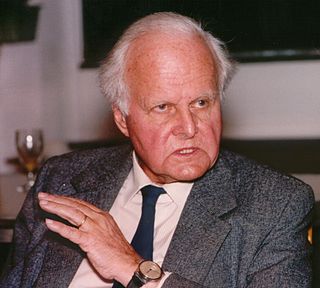A Quote by Michio Kaku
For bedtime reading, I usually curl up with a good monograph on quantum physics or string theory, my specialty. But since I was a child, I have been fascinated by science fiction. My all-time favorite is 'The Foundation Trilogy,' by Isaac Asimov.
Related Quotes
I often use detective elements in my books. I love detective novels. But I also think science fiction and detective stories are very close and friendly genres, which shows in the books by Isaac Asimov, John Brunner, and Glen Cook. However, whilst even a tiny drop of science fiction may harm a detective story, a little detective element benefits science fiction. Such a strange puzzle.
When you look at the calculation, it's amazing that every time you try to prove or disprove time travel, you've pushed Einstein's theory to the very limits where quantum effects must dominate. That's telling us that you really need a theory of everything to resolve this question. And the only candidate is string theory.

































